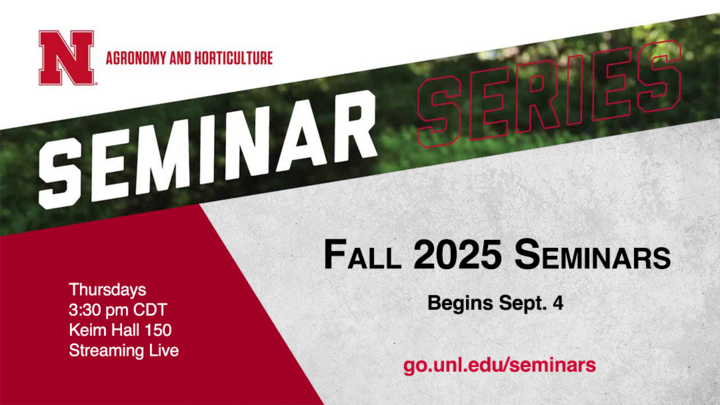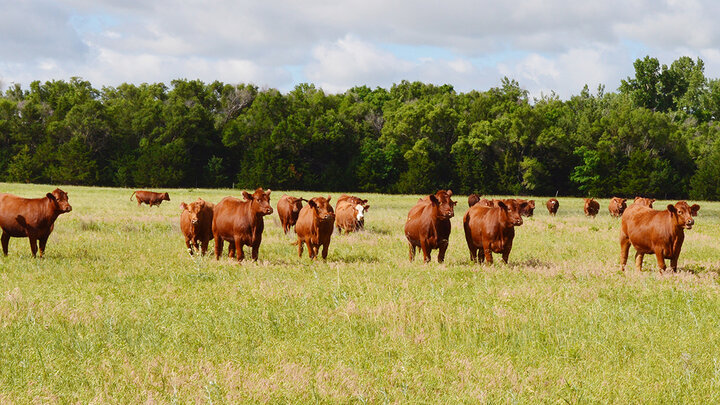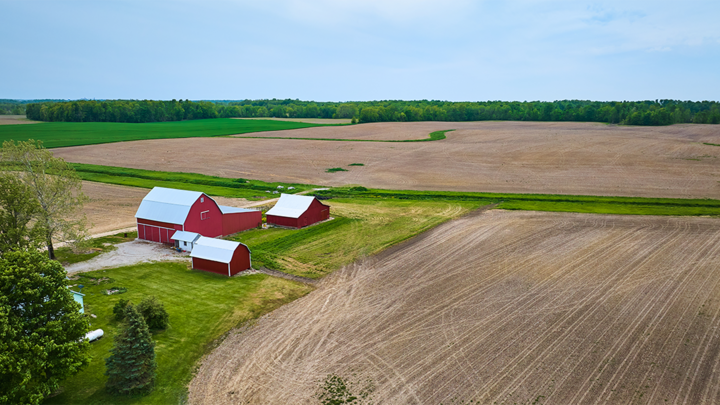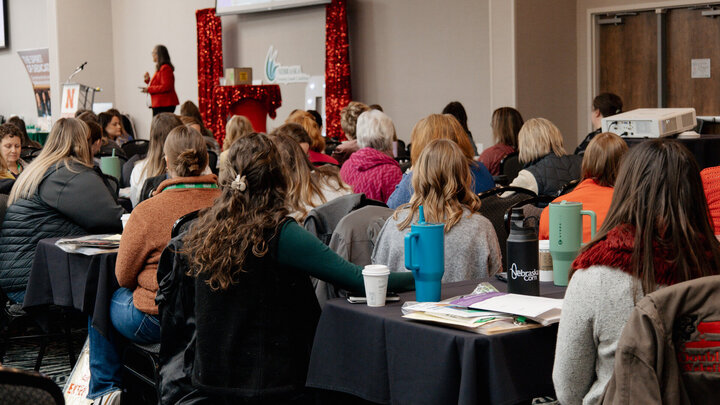Editor’s note: Several seminar topics are still to be determined. Check back for updates as additional details are finalized.
The University of Nebraska–Lincoln’s Agronomy and Horticulture seminar series kicks off Thursday, Sept. 4 with a dynamic lineup of speakers tackling some of the most pressing issues in agriculture.
The fall 2025 seminar series will showcase the breadth of agricultural science and its impact on farms, communities and global challenges. Speakers will examine food security through the lens of national defense, uncover the social and ecological dimensions of rangeland systems, and look ahead to the future of genetically engineered crops. Participants will also gain insights into how theories of power shape climate-smart agriculture and diversification efforts, and how a century-old wheat pest is being confronted with new biological control strategies.
The season continues with seminars on practical tools for Nebraska producers, including strategies for irrigation scheduling and understanding soil water dynamics, as well as programs designed to grow farmer engagement in science advocacy. Later sessions will highlight advances in turfgrass management and soil health, rounding out a semester that balances cutting-edge research with applied practices relevant to agriculture in Nebraska and beyond.
All seminars are free and open to the public. Seminars will be in person on Thursdays in Keim Hall, Room 150, streamed live at 11 a.m. CST/CDT, and recorded unless otherwise noted. Refreshments will be served at 10:30 a.m.
Dates and topics for the fall 2025 series are as follows:
Sept. 4
"Integrating Testing Optimization Frameworks into Soybean Breeding at UNL" — Arthur Bernardeli, Ph.D. candidate in plant breeding and genetics, Department of Agronomy and Horticulture, University of Nebraska–Lincoln (UNL)
This presentation highlights innovations to enhance soybean breeding efficiency at UNL. Topics include optimizing multi-environment trials through implementing genomic sparse testing designs, TPE and hub definitions, advancing drone-based phenotyping for maturity and software development to streamline analytical pipelines. Together, these approaches strengthen decision-making, improve resource allocation and accelerate genetic gain.
Sept. 11
“In the Name of National Security: Front Line Science for the Farm, Table, and in a Tube” — Meghan Jackson, director for food, agriculture and environment security, National Strategic Research Institute, University of Nebraska
What do flying cows have to do with national security? And how does your research on severe weather protect our country? Take a walk through history to discover how diseases, environmental research and groundbreaking ideas crucial for national defense transform your every day.
Sept. 18
"Decisions on the Prairie: How People Shape Rangeland Futures" — Gwendŵr Meredith, assistant professor, Department of Agronomy and Horticulture, and School of Natural Resources, UNL
What do ranchers’ decisions have to do with healthy prairies? And how does social science shape the future of our food and open spaces? Explore how research on people, prairies and partnerships reveals surprising connections that turn science into public value on working rangelands.
Sept. 25
“Where to go with GMOs? The Next Generation of Agricultural Biotechnology” — Nathaniel Butler, director, UNL Plant Transformation Core Research Facility, and assistant professor, Department of Agronomy and Horticulture
It has been over 40 years since the first GMO plant product, the Flavr Savr tomato was released, and only a handful have come since — so what now? This presentation will present current approaches to getting genetically engineered plant products to market and the opportunities and challenges to the industry.
Oct. 2
“Using Theories of Power to Navigate Persistent Problems: Exploring Cases of Climate-Smart Agriculture in California and Agricultural Diversification in the Corn Belt” — Brennan Radulski, post-doctoral research associate, Department of Horticulture and Landscape Architecture, Purdue University
This presentation will discuss how social science research can provide a deep understanding of complex and persistent problems by applying theories of power to analyze and interpret social science data. The presentation will draw from cases exploring food system audiences’ perspectives of 1) the efficacy of California government climate-smart agriculture programs for farmers and 2) the policy and market challenges and opportunities related to diversifying farming systems, the landscape, and markets in three Corn Belt states.
Oct. 9
“Beneficial Bug Bale Project: An Eloquent Strategy for Managing a 100-year Pest of Wheat”— Jeff Bradshaw, professor of entomology, director of plant health, UNL
The wheat stem sawfly, Cephus cinctus, has been a major pest of wheat in North America for over 100 years. Recent work by a large group of scientists and stakeholders are evaluating the success of a unique biological control strategy for the conservation and augmentative release of braconid parasitoids for the management of the wheat stem sawfly.
Oct. 16
“Understanding Soil Water Holding Capacity for Effective Irrigation Scheduling” — Bruno Lena, water and cropping systems assistant extension educator and program area leader, Nebraska Extension, UNL
What do flying cows have to do with national security? And how does your research on severe weather protect our country? Take a walk through history to discover how diseases, environmental research, and groundbreaking ideas crucial for national defense transform your every day.
Oct. 23
“Farmers as Science Advocates - Cases for Creative Engagement” — Rachael Whitehair, director of innovation and stewardship, Nebraska Corn Board
Producers across the nation are heavily engaged in research and science communication, contributing to the advancement of the agriculture industry and its overall sustainability. This presentation takes a closer look at some of the key models utilized by commodity organizations to grow science advocacy and involvement among farmers.
Oct. 30
"Innovation through Collaboration: Celebrating 120 years of UNL–USDA Partnerships" — Virginia Jin, research leader/location coordinator, USDA-Agricultural Research Service, Lincoln, Nebraska
This presentation reviews the long history of collaboration between UNL and USDA, including a summary of our current research and impacts.
Nov. 13
“Utilizing Extension to Answer Turfgrass Science Questions for Nebraskans and Beyond” — Amanda Folck, assistant extension educator in turfgrass management, Department of Agronomy and Horticulture, UNL
This seminar will show how Folck developed her work in extension to utilize the answers to turfgrass science questions for Nebraskans and beyond. This is based on examples of her current collaborations in various outreach/engagement, teaching and applied research with extension.
Nov. 20
TBD — Katherine Frels, assistant professor, Department of Agronomy and Horticulture, UNL
Dec. 4
“In the Name of National Security: Front Line Science for the Farm, Table, and in a Tube” — Carolina Córdova, assistant professor and statewide soil health specialist, Department of Agronomy and Horticulture, UNL
For questions, contact Tamara “Toma” Sukhova, Department of Agronomy and Horticulture seminar committee.




